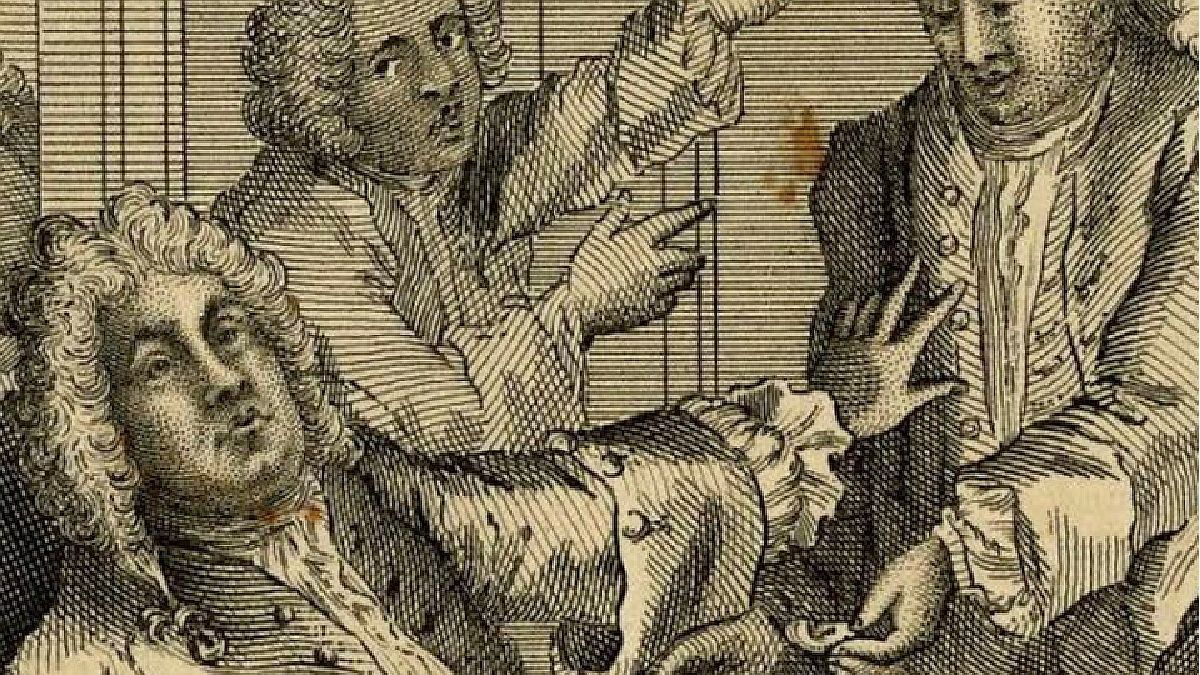It turns out that Walpole did not want to take action against the Spanish Empire after the Treaty of Asiento de Negros signed in 1713 where Great Britain was granted for a period of 30 years, the monopoly of the slave trade in the overseas colonies. The Treaty had been a concession to England for her participation in the War of the Spanish Succession (1701-1713).
The opportunity was seized by the establishment British and for this purpose a company was created, the South Sea Society, willing to profit at the expense of this Treaty that opened an infinity of commercial possibilities and, especially, slavery. Greed overtook expectations, creating a financial bubble where stocks rose exponentially from pence to pounds. But like any bubble, it burst and the shares ended up at values close to nothing.
Returning to the ear of Mr. Jenkins, the members of the House of Commons, opponents of Minister Walpole, pushed the United Kingdom into a war against Spain, although the English well knew that their subjects exceeded the rights granted and that of Jenkins had been only a tiny fraction of the merchandise that the English smuggled into the Spanish colonies or the Spanish ships that the British tied up as filibusters.
The number of ships captured is still a matter of dispute, some historians speak of 231 Spanish ships boarded, against 331 requisitioned British ships.
Walpole himself tried to maintain a cordial relationship with Spain because both acted as allies in the War of the Polish Succession, but the opposition exalted both the amputation of the auricle of the Mr Jenkins that Walpone had to cede and George II declared war on the Empire.
The English got the worst of this confrontation, although they have tried to disguise the defeat in the context of the Spanish black legend in order to justify their acts of piracy as laudable claims. Apparently the Spanish had spies at the British court, which is why they were able to anticipate some of their maneuvers. It was like that the Spanish admiral Blas de Lezo (1689-1741) defeated Edward Vernon (1684-1757) in Cartagena de las Indias, which at the time had the support of North American colonists led by the brother of George Washington (who would call his property Mount Vernon in honor of the English commander). The defeat was so humiliating that George II ordered all mention of this failure to be removed from official records.
Blas de Lezo went down in history under the name of Medio Hombre because serving his king he had lost an eye, an arm and a leg.
While this was happening, in the Caribbean, Lord Anson (1697-1762) ravaged Acapulco with as little fortune as Vernon’s. Of 8 ships with 2,000 men with which he started the campaign, only 145 combatants returned on a single ship.
The war came to an end with the Treaty of Aachen (1748), although as soon as the signing was over, both nations looked for an excuse to start a new war, without the need for an ear.
Source: Ambito
David William is a talented author who has made a name for himself in the world of writing. He is a professional author who writes on a wide range of topics, from general interest to opinion news. David is currently working as a writer at 24 hours worlds where he brings his unique perspective and in-depth research to his articles, making them both informative and engaging.




